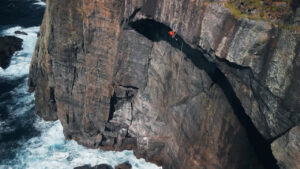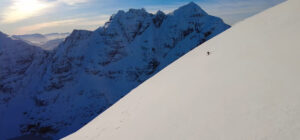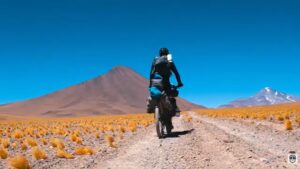Lockdowns and closed borders have a way of redefining goals. After almost a year stuck indoors because of COVID, two Scotsmen decided to cut loose with a long canoe loop. At first, they planned to link three lochs together in a single expedition — Lochs Maree, Fionn, and Fada. But by the time they set off, they were embarking on an entirely different objective.
Known locally as Scotland’s Last Wilderness, the Northwest Highlands have barely changed in hundreds of years. City dwellers find the 12-hour drive from London’s perimeter unworthy of the hassle. The wind-lashed snowy mountains, wildly long grass, cold rivers, isolation, and few creature comforts aren’t for everyone. But Ian Finch and his friend Jamie Barnes found this an Ideal venue for a post-lockdown paddle.

The duo planned to complete all three lochs with land portage between. Barnes — a cinematographer and outdoor guide — documented the experience.
They started with the 22km-long Loch Maree. The fourth largest freshwater loch in Scotland, Maree has five large wooded islands and 60 small islands.
Little noise greeted the paddlers except for the call of tawny owl and chattering tree branches from stags wandering through. The only sign of humanity came from two fighter jets darting overhead through the grey sky.

After completing Maree, the duo carried their gear for the 10km commute to Loch Fionn, a smaller, shallow, freshwater loch. Here, poor weather constantly challenged the canoeists. Finch and Barnes had to hunker down after swells threatened to capsize them into the frigid water.
On land, they found an old hut where they enjoyed natural air conditioning through broken walls. But it was five-star luxury compared to the sodden countryside. When the bad weather broke, they resumed their paddle on Loch Fada, the smallest of the three. Fada ceremoniously rounded off the expedition without issue.
The pair’s journey was about championing adaptation, the relentless need to change course based on twists and turns of nature.






